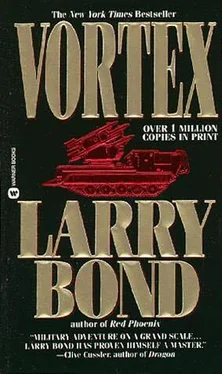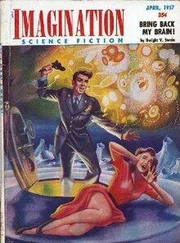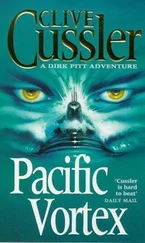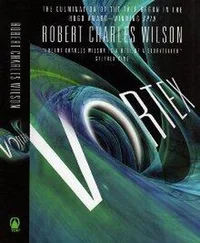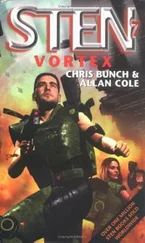USSR’s still potent instruments of political power-the military, the secret police, and the bureaucracy. The President laughed inwardly. As usual, theory meant little in the real world.
The members of the Defense Council couldn’t topple him from power. He had that much security. But their opposition to his policies could render him an ineffective figurehead. He’d seen it happen to other Soviet leaders as illness or repeated mistakes robbed them of their authority. Orders could be misinterpreted or simply shunted to the wrong place within the USSR’s vast, unresponsive bureaucracy. Directives could either be simply ignored or put into action with crippling slowness.
No, he needed a consensus from these men.
Castro’s proposition had hit them hard. Accepting it would mean dramatically altering the USSR’s established national security policy.
No one knew that better than he did.
Under his guidance, the Soviet Union had turned inward in the late 1980s-no longer interested in costly “foreign adventures. ” The change hadn’t come out of the goodness of his heart. It had come as part of a desperate attempt to head off total economic collapse.
By cutting its losses overseas, the USSR had been able to reduce its military spending-freeing more resources for the production of the consumer goods increasingly demanded by Soviet citizens. Those sweeping changes in foreign policy had been accompanied by equally sweeping changes at home-changes symbolized by the terms glasnost and perestroika.
But both glasnost and perestroika were foundering. Too many of the USSR’s constituent republics were clamoring for full independence. And too many of perestroika’s economic reforms were being smothered by the dead weight of a Soviet system unable to tolerate individual initiative and private enterprise.
The President shook his head.
So now Cuba, which had rejected and condemned his reform program, and which cost billions of rubles in military aid and price supports for its sugar crop, wanted to involve the Soviet Union in a war at the end of the world!
On the surface, it would seem easy to refuse Castro’s request. And yet, there were certain possibilities … The foreign minister’s elegant, carefully modulated voice broke into his private train of thought.
“I tell you, comrades, Castro’s plan is simply too costly. I’ve seen the reports. Just supplying Cuba’s army in Namibia is draining our hard-currency reserves and absorbing a substantial portion of our transport aircraft and ships. We cannot afford to expand our involvement in this conflict.”
“I disagree, Alexei Petrovich.” The head of the KGB leaned forward in his chair, his deceptively kindly face creased by a frown.
“We’ve gained important international
goodwill by helping the Narnibians-goodwill we may yet be able to translate into trade and technology agreements.”
That was unlikely, the President knew. Goodwill and words of praise were cheap. Trade and technology agreements were costly. So far, the West’s leaders had proven extraordinarily adept at avoiding serious commitments.
And while it was pleasant to be portrayed as being on the side of freedom and human progress, kind words were no substitute for the material aid the
USSR desperately needed to revitalize its deteriorating economy and its aging industrial infrastructure. No substitute at all.
The foreign minister turned sideways in his seat to face his rival.
“These agreements you speak so glowingly of will not materialize in the aftermath of an embarrassing defeat, Comrade Chairman! And that is precisely what this Cuban proposal will produce. ” He looked toward the minister of defense.
“Isn’t it true, Dmitri, that South Africa’s army remains the most powerful on that continent-despite being stalemated in Namibia?”
“True. ” The defense minister paused, pouring a tiny dram of vodka into a newly emptied glass.
“Military logic argues that this invasion Castro plans would be doomed before it began. “
For the first time during the debate, Marshal Kamenev, the chief of the general staff stirred.
The President glanced curiously at him. Unlike his superior, the defense minister, Kamenev had a proven combat record-both in the Great Patriotic
War and in Afghanistan.
“Yes, Marshal? You have a comment?”
Kamenev nodded slowly.
“Yes, Comrade President. I agree that South Africa’s armed forces appear on paper to be immeasurably superior to those of its current enemies. But appearances can be deceiving, no?”
The President was intrigued.
“Go on, Nikolai.
“Much of Pretoria’s strength is tied down within its own borders holding the blacks and other races in check. If they strip the interior of enough men to crush Castro’s invasion force, South Africa’s whites risk leaving their own homes defenseless. I don’t believe that’s a risk they’ll be willing to run.”
Kamenev shrugged.
“As matters stand, I believe we see an equal correlation of forces in southern Africa-superior South African ground strength matched by weakness at home. And under those circumstances, Castro’s plan could succeed. ““But at what cost?” the foreign minister countered.
“Do we want to provoke American intervention on South Africa’s side? Do we want a direct military confrontation with the United States? Now? That could well be the result of helping Cuba escalate this war!”
“Calm yourself, Alexei Petrovich.” The KGB’s chairman smiled sardonically.
“Washington would not dare aid Pretoria’s racist regime.
Such an imperialist move would outrage its own people, its allies, and all the world’s ‘nonaligned’ nations.
“And even if the Americans were foolish enough to involve themselves,
Cuba’s plan does not require direct action by our troops or aircraft, merely political support and logistical backing. The risk of direct contact or combat losses is minimal!”
The foreign minister’s face turned a dangerous shade of red.
“Nevertheless, comrades, we have nothing to gain and much to lose!”
The embarrassed silence surrounding this outburst was broken by the sound of a throat being nervously cleared. The President looked to his right.
“You have something to add, Professor Bukarin?”
His economic advisor nodded slowly.
“Yes, Comrade President.” He turned to the beet-red foreign minister.
“Your statement was not quite accurate,
Comrade Minister. Between us, South Africa and the USSR produce substantial portions of some of the world’s most important strategic minerals.”
“I’ve seen the trade figures,” the foreign minister said curtly.
Bukarin nodded politely.
“My point is this, comrades. The previous South
African government once asked us to join them in a world gold cartel. It was an idea with some merit.
And would not a friendlier, more accommodating South African government be eager to join a broader cartel-one controlling the world’s strategic-minerals market? Surely that would be a logical development-a small price to be paid for our support?”
So it would. Much of what the young man said made perfect sense. The
President stroked his chin reflectively. De facto control of South
Africa’s resources would give the Soviet Union a vital economic edge in its bargaining with the West. Soviet state export companies could match any price increases initiated by a new “revolutionary government—greatly increasing the flow of needed hard currency into Moscow’s treasury. And at the same time, those higher prices would greatly retard the West’s economic growth-giving the USSR a chance to close the gap. That would also prove to the world that the rumors of the Soviet state’s impending demise were greatly exaggerated.
Читать дальше
